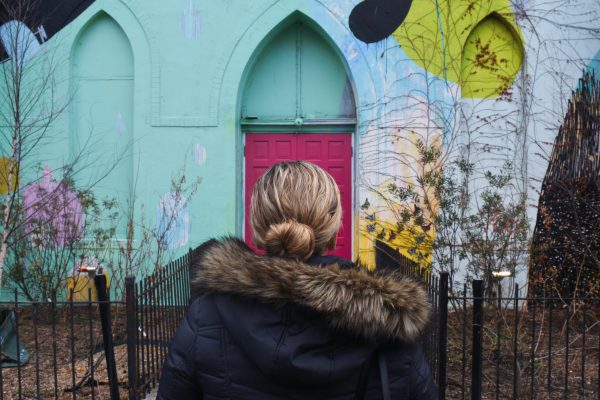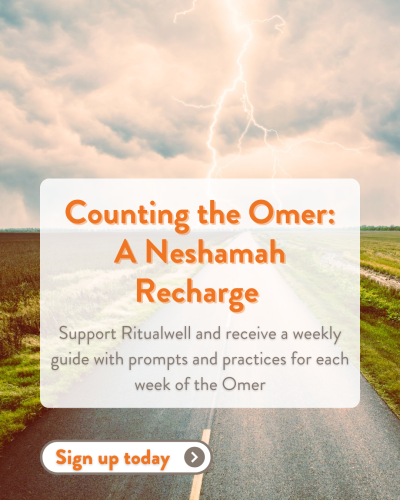This ritual for moving out of a home or leaving a space is grounded in Jewish texts about recognizing the space we are in and blessings as we go on our way. You can perform this ritual when the space has been emptied or in the midst of the process, whenever you are ready to energetically release the space. The ritual as designed involves few supplies (since you are in the midst of a move, after all), though you may find it meaningful to bring in some scents or tastes that honor your time in the space.
There are a lot of different reasons why people move, and different types of homes and ways those homes have served us. Whether you have lived in a home for thirty years, or an apartment temporarily, this space has held you in some way. Whether you are moving out to something positive, or moving away from something negative, this space has held you in some way. This ritual invites you to recognize your time in this space and prepare to move on.
This ritual uses as its inspiration the mitzvah of bedikat hametz, or the removal of leavened bread prior to Pesakh (Passover).
Suggested Supplies
- Modified bedikat hametz supplies
- A light
- A gathering tool (hand, feather, paper)
- A vessel to hold (a spoon, a shell, a bowl)
Recommended pre-ritual reflection
Take some time (10 minutes – 1 hour, whatever is right for you) and pause from your packing or cleaning. Take a journal into each room/space and note a few memories or feelings you want to recall or hold with you.
You can begin the full ritual now, or let your reflections marinate a bit before proceeding.
Full Ritual
-
- Recite the opening of Mah Tovu (Num. 24:5):
מַה טּוֹבוּ אֹהָלֶיךָ יַעֲקֹב מִשְׁכְּנֹתֶיךָ יִשְׂרָאֵל
Mah tovu ohalekha Ya’akov, mishkenotekha Yisrael
How goodly are your tents, Jacob; your dwellings, Israel!
- Recite a blessing, beginning the process of recognizing the space for how it has served you:
Blessed are You, God, Sovereign of the Universe,
who has brought me/us to this dwelling and given me/us respite here.
-
Move through each part of the pace, walking slowly, gathering in memories using your gathering tool and vessel and reciting aloud:
Blessed are You, God, for… [fill in the blank]
E.g.: providing us with nourishing food and drink in this kitchen, giving me space to relax and restore in the living room
- As you move through the boundaries of the home, keep adding to the berakhah.
- Once you have completed your circuit, take what you have gathered, physical or otherwise, and set it down.
- Recite these words of abundance (Psalms 104:24):
מָה־רַבּ֬וּ מַעֲשֶׂ֨יךָ ׀ יְֽהֹוָ֗ה
Mah rabu ma’asekha Adonai
How plentiful are your doings, God
- Open the door or a window and recite:
May all that has blessed me here bless those who will inhabit the space after me.
May all that has challenged me here be released.
May all my doings be good.
- Release out the door or window what you have “gathered.”
- In closing, recite this line from the Hashkiveinu prayer:
וּשְׁמֹר צֵאתֵֽנוּ וּבוֹאֵֽנוּ לְחַיִּים וּלְשָׁלֹם מֵעַתָּה וְעַד עוֹלָם
U’shmor tzeiteinu u’vo’einu l’khayim u’le’shalom, me’atah v’ad olam
Guard our going and coming to life and to peace, from now and forever
- Recite the opening of Mah Tovu (Num. 24:5):












